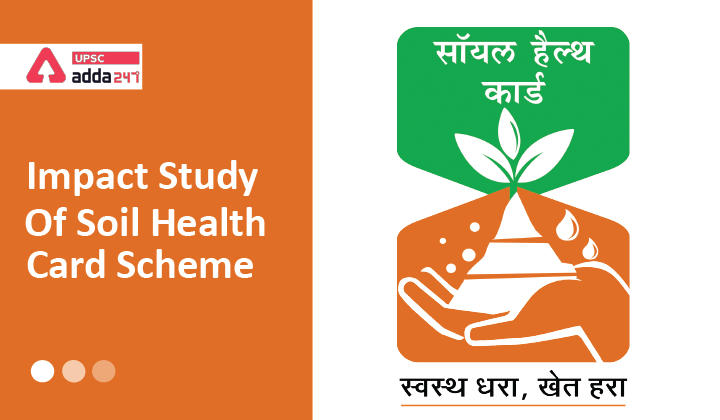Table of Contents
Soil Health Card Scheme- Relevance for UPSC Exam
- GS Paper 3: Indian Agriculture- Technology missions, e-technology in the aid of farmers.
Women in Agriculture in India: Gender Mainstreaming in Agriculture
Soil Health Card Scheme- Context
- National Institute of Agricultural Extension Management (MANAGE), Hyderabad conducted an impact study of the Soil Health Card (SHC) scheme.
- Major Findings: The findings are overall positive and show a healthy sign of moving towards balanced use of fertilizers. Overall, paddy farmers reduced-
- Use of urea by 9%,
- Use of Di Ammonium Phosphate (DAP)/ Single Super Phosphate (SSP) by 7%,
- Increased use of Potassium by 20%.
The Editorial Analysis: Indian agriculture needs a Verghese Kurien
Soil Health Card Scheme
- About: Soil Health Card Scheme aims to provide farmers status of soil nutrients of their agricultural landholding.
- Under Soil Health Card (SHC) Scheme, it also provides suggestions to the farmers on the dosage of fertilizers and the application of soil amendments that are needed to maintain soil health in the long run.
- Periodic Analysis of Soil Health: Under Soil Health Card (SHC) Scheme, State governments provide the analysis of soil composition once every three years so that remedial steps can be taken to improve soil nutrients.
- Soil samples are taken from a grid of 2.5 ha in the irrigated area and 10 ha in the rain-fed area with the help of GPS tools and revenue maps.
- Parent Ministry: Soil Health Card Scheme is being promoted by the Department of Agriculture & Cooperation under the Ministry of Agriculture and Farmers’ Welfare.
- Coverage: Soil Health Card Scheme has been implemented in all parts of the country including Tamil Nadu, Maharashtra, Telangana and Uttar Pradesh.
National Institute of Agricultural Extension Management (MANAGE)
- About: MANAGE was established as the National Centre for Management of Agricultural Extension at Hyderabad, by the Ministry of Agriculture & Farmers Welfare, Government of India.
- National Institute of Agricultural Extension Management (MANAGE) was established as an autonomous institute by the Ministry of Agriculture & Farmers Welfare in 1987.
- MANAGE is the Indian response to challenges of agricultural extension in a rapidly growing and diverse agriculture sector.
- National Institute Status: It was upgraded to the status of National Institute in 1992 and re-christened to its present name i.e. MANAGE.
National Institute of Agricultural Extension Management (MANAGE)- Key Mandate
- Developing linkages between prominent state, regional, national and international institutions concerned with agricultural extension management
- Gaining insight into agricultural extension management systems and policies
- Forging collaborative linkages with national and international institutions for sharing faculty resource
- Developing and promoting the application of modern management tools for improving the effectiveness of agricultural extension organizations
- Organizing need-based training for senior and middle-level agricultural extension functionaries
- Conducting problem-oriented studies on agricultural extension management
- Serving as an international documentation center for collecting, storing, processing and disseminating information on subjects related to agricultural management.



 TSPSC Group 1 Question Paper 2024, Downl...
TSPSC Group 1 Question Paper 2024, Downl...
 TSPSC Group 1 Answer key 2024 Out, Downl...
TSPSC Group 1 Answer key 2024 Out, Downl...
 UPSC Prelims 2024 Question Paper, Downlo...
UPSC Prelims 2024 Question Paper, Downlo...
